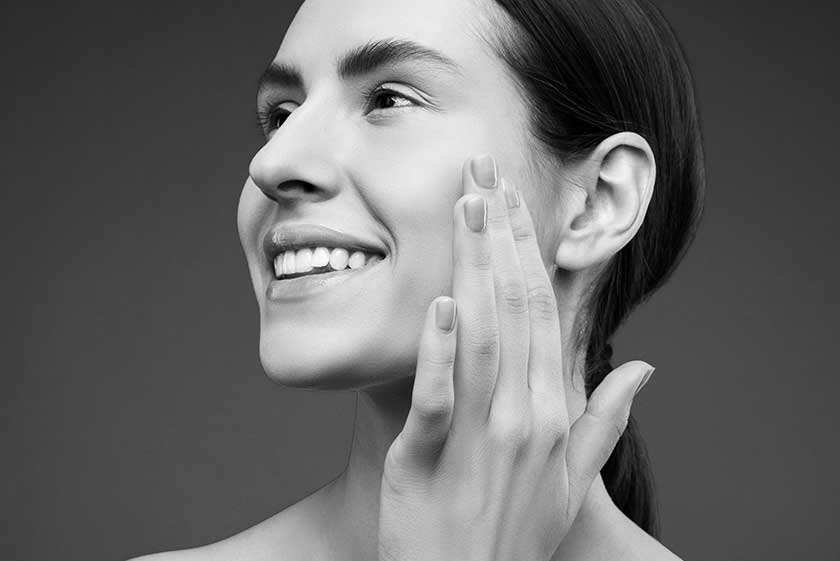We adapt all treatments to what is best for you
Dr. Wayne helps you
Do you suffer from painful, tense or tender jaws or cheeks? Do you have sensitive teeth? Do you wake up with a stiff neck or headache in the morning? Do you suffer from constant tension headaches or migraines? All of this can be a sign that you are grinding your teeth in your sleep. Fortunately, we have a treatment that may help you.

What is Bruxism(tooth grinding)?
Teeth grinding, called bruxism in medical terminology, is the grinding of teeth, either during sleep or in tense situations. The grinding is most often associated with the first part of a night’s sleep, and it can be of such a degree that it affects the partner’s sleep. Some people actually grind so loudly during sleep in a way that’s impossible to reproduce in when awake. For others, the grinding can be silent, and often it is not detected until tooth or jaw problems occur.
The extent of the grinding also varies from person to person. Some grind gently and infrequently, while others grind every night and intensely.
Tooth grinding is a common condition. Between one in five and one in ten people grind their teeth. Of the conditions that interfere with sleep, only snoring and talking during sleep more common.
Symptoms
Findings suggestive of grinding are:
- Painful, tense or tender jaws or cheeks
- Sensitive teeth
- Stiff neck or headaches in the morning
- Frequent tension headaches or migraines
- Audible grinding of the teeth either in a waking state or in tense situations
- Worn tooth edges
- “Clicking” and other sounds from the jaw joint
- “Chewed” tissue on the inside of your cheeks
Cause
We do not know for certain what causes teeth grinding, but in some people the problem is an abnormal bite when the lower and upper jaw come together. Researchers believe that psychological factors also influence grinding, factors such as tension, stress or anxiety, suppressed anger / frustration or an aggressive, competing and possibly hyperactive personality. Caffeine, nicotine, and other stimulants can increase the adrenaline level in the body and thus aggravate grinding of teeth.
Less commonly, tooth grinding can occur after brain injury or illness (especially disease associated with facial movements). Tooth grinding can also be a side effect of some medications that target psychiatric illness, such as anti-depressives.
As many as one third of all children grind their teeth, especially at the age of five or six. Experts believe this is related to growth, ear pain or new teeth. Most kids grow out of the problem, but in older kids even grinding for a short period of time can damage the permanent teeth.
At the dentist
More often than not, the problem is first discovered at a dental check-up. If the dentist suspects tooth grinding, he/she will often observe the condition over multiple visits before initiating treatment. The dentist will begin by trying to uncover the source of the grinding by asking you some questions about your habits and any medications you might be on. The dentist will inspect your teeth looking for damage as well as take x-rays to check if your teeth are positioned correctly relative to each other.
If uncertain about the diagnosis or whether other physical or mental ailments may be the cause of the dental injury, you will most often be referred to a doctor for evaluation.
Consequences of tooth grinding
The most worrying aspect of bruxism is the damage caused to the teeth and/or jaw. The intense muscular contraction during grinding causes strain and pain in the surrounding tissues, joints and muscles – which in turn can cause headaches, stiff neck and sore jaws. Further disadvantages of the condition are aggravation of other dental problems and that the noise may disturb your partner’s sleep.
Injection treatments
Teeth grinding is a problem that can be resolved immediately with injections directly into the masseter (chewing) muscle. The procedure takes no more than 10 minutes and the effect will be clearly noticeable after approximately 4 days when the tension dissolves and the muscles relax. After 6-8 weeks, you will be notice that the size of the chewing muscle has decreased somewhat, giving a milder facial expression. Treatment is repeated after about 3 months and eventually the time between treatments will be extended as the chewing muscles learn to relax because they are no longer tense.
What happens after treatment? Side effects?
The treatment is generally considered a safe treatment with very low risk of complications. You can go back to work immediately after treatment.
Price?
Kr 3000, –
Why choose Proderma Scandinavia tooth grinding treatment?
Our certified aesthetic physicians are best qualified to treat this condition properly. Incorrect injection can cause major negative effects, e.g. loss of chewing function or ability to smile.
Disclaimer
The above information is given as guidance as a part of the decision-making process and is not an exhaustive description of the procedures and treatments. Information shall be up to date at the time of publishing and will be updated at our discretion. Our doctors will assess and determine your suitability before treatment. Consult The Norwegian Pharmaceutical Product Compendium (Felleskatalogen AS) for complete information about any described medicine. All rights reserved.

